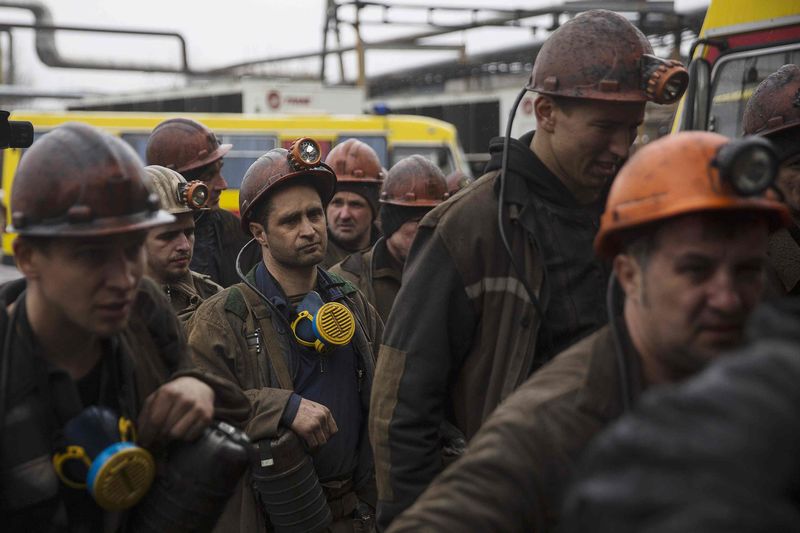By Maria Tsvetkova
DONETSK, Ukraine (Reuters) - Ivan Lazarenko, one of those pulled out alive after an explosion at a mine near the frontline in rebel-held east Ukraine killed 33 workers, lay in hospital on Thursday, still unconscious and in bandages.
If he recovers, it will not be the first time this year he had escaped death at the mine: he was trapped once in an elevator when the mine was hit by incoming fire, cutting power in the pit, said his wife Tatyana Kosenko.
"Yesterday I was getting ready for work and they called me to tell me he was in the burn centre, but was alive and well. Somehow this is considered to be 'well'. Of course, thank God, he's alive," she said at his bedside, stroking his shoulder.
The coal mining that provides the lifeblood of eastern Ukraine is a dangerous job at the best of times, but keeping the pits open at the frontline during war has made it far riskier.
Although Wednesday's gas explosion was not directly caused by the fighting, miners say war may have contributed to the death toll. Other parts of the mine had been damaged in the past by artillery strikes, which cut off access routes and may have made escape more difficult for those trapped below ground.
Were it not for the war between Russia-backed separatists and the Ukrainian authorities, Eduard Kiporov, one of those missing and presumed dead in the blast, would not have been working at all at Zasyadko, a notoriously dangerous mine where 106 people died in a gas explosion in 2007.
He took the job only because the mine where he normally worked, Oktyabrskaya, was bombed several months ago.
"They constantly shot at this mine. They went into that mine every day and had no idea whether they would come back out or not, either from artillery fire or some accident," said his sister Julia.
The area near the Zasyadko is littered with the debris of missiles, a short distance from the graveyard where victims of previous disasters are buried and where fresh graves had been dug for those killed in Wednesday's blast.
Ukrainian Prime Minister Arseny Yatseniuk suggested the separatists who control the area may have also worsened the disaster by refusing access to a team of emergency workers dispatched by central authorities.

In a part of Ukraine dominated by coal and steel, miners have little choice but to work at locations that are frequently under fire. Last July, a bus carrying miners to work in Krasnopartizan in Luhansk Province was struck by fire from Grad rockets killing four people and injuring 16 miners.